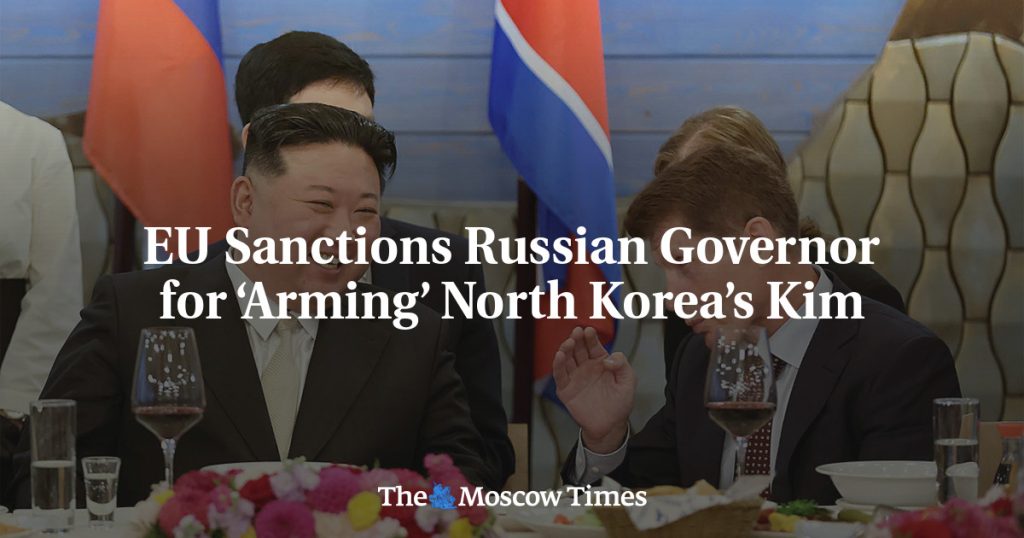The European Union has imposed sanctions on Primorye region Governor Oleg Kozhemyako in Russia’s Far East for allegedly supplying arms to North Korea in violation of UN sanctions. Kozhemyako was seen gifting weapons and uniforms to North Korean leader Kim Jong Un during his visit to Russia in September, which the EU claims constitutes an indirect transfer of technology to North Korea. In addition to Kozhemyako, five North Koreans, two North Korean firms, and one Russian company were also sanctioned for their involvement in arms or money transfers for Pyongyang.
One of the sanctioned Russian companies, Eastern Stevedoring Company, was accused of facilitating the transfer of weapons and ammunition from North Korea to Russian forces, allegedly intended for use in Ukraine. A U.S. Defense Department report recently claimed that Russia was using North Korean ballistic missiles in Ukraine, based on an analysis of debris found in the Kharkiv region. South Korea has also accused North Korea of sending munitions to Russia, although Kim Jong Un’s sister Kim Yo Jong dismissed these accusations as “absurd.”
The EU sanctions are part of ongoing efforts to combat North Korea’s weapons programs, with the bloc having now sanctioned a total of 77 individuals and 20 entities in connection with these activities. The G7 has also expressed concerns about increasing military cooperation between Russia and North Korea. The EU claims that the sanctioned individuals and entities are aiding in the evasion of UN sanctions on North Korea, and are contributing to the proliferation of weapons technology to the North Korean armed forces.
The sanctions against Kozhemyako and others highlight the challenges posed by the illicit arms trade and the potential dangers of North Korea’s weapons programs. The EU’s actions are part of broader international efforts to enforce sanctions on Pyongyang and prevent the spread of weapons technology. The involvement of Russian companies in facilitating arms transfers from North Korea raises further concerns about regional security and the impact of such activities on conflicts like the ongoing situation in Ukraine.
As tensions continue to escalate over North Korea’s weapons programs, the international community is facing growing challenges in addressing these threats. The EU’s decision to sanction individuals and companies involved in arms transfers to North Korea underscores the importance of enforcing sanctions and preventing the spread of weapons technology. Efforts to combat illicit arms trade and proliferation are essential to maintaining regional stability and preventing further escalation of conflicts fueled by weapons transfers and military cooperation between countries like Russia and North Korea.


